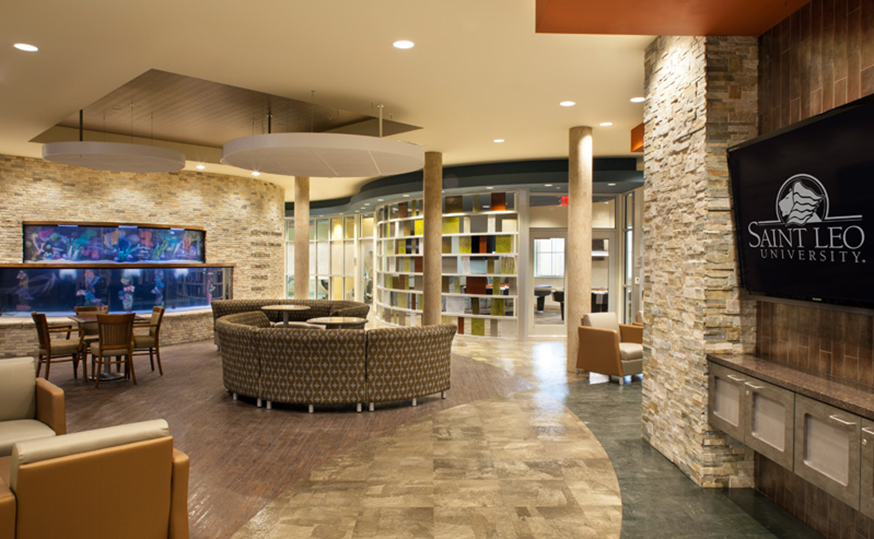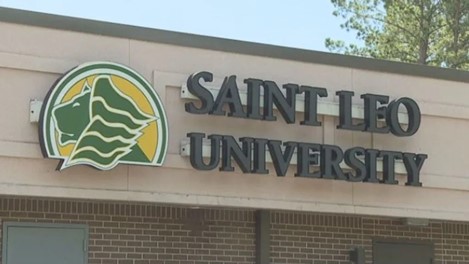Workshop Title:
Software Maintenance and Testing
Date:
May 10th, 2024 (UTC-4)
Organizer:
CS department, College of Computing, Saint Leo University, USA
Keywords:
- Software maintenance
- Software testing
- Change management
- Version control
- Release management
- Regression testing
- Performance testing
- Security testing
- User acceptance testing
- Software quality
Workshop Chair:
Personal Bio:
Derek Mohammed holds the academic rank of full Professor in Cybersecurity, in the College of Computing, Artificial Intelligence, Robotics and Data Science at Saint Leo University. Dr. Mohammed is the founding Director of the Center for Cybersecurity Education at Saint Leo University. Dr. Mohammed has over twenty-five years of professional and academic experience in the information systems field. Dr. Mohammed holds several industry certifications, which include CISSP, CISA, CISM, and PMP. Dr. Mohammed is a reviewer for the Journal of Information Security: A Global Perspective. His research interest includes Cybersecurity, Network Security, and Cyber Risk and Compliance.
Workshop Description:
Background:
The field of software development is dynamic and ever-evolving, with constant advancements and updates being made to keep up with changing technology and user needs. However, once software is deployed, the journey doesn't end there. It enters the phase of software maintenance, which involves ongoing updates, bug fixes, and enhancements to ensure its optimal performance and usability.
The Software Maintenance and Testing workshop is designed to provide participants with a comprehensive understanding of the principles, techniques, and best practices involved in software maintenance and testing. The workshop aims to equip individuals with the necessary skills to effectively manage software maintenance processes and ensure the reliability and stability of software systems.
During the workshop, participants will delve into various aspects of software maintenance, including the identification and prioritization of maintenance tasks, change management, version control, and release management. They will also explore different testing methodologies and strategies to validate software changes and mitigate risks associated with maintenance activities.
Moreover, the workshop will cover topics such as regression testing, performance testing, security testing, and user acceptance testing. Participants will learn how to develop test plans, execute test cases, and interpret test results to assess the quality and functionality of software systems.
By the end of the workshop, participants will have gained valuable insights into the significance of software maintenance and testing in ensuring the longevity and efficiency of software applications. They will be equipped with practical knowledge and tools to effectively manage software maintenance tasks, address bugs and issues, and deliver high-quality software products to end-users.
Overall, the Software Maintenance and Testing workshop is essential for software developers, testers, project managers, and professionals involved in the software development lifecycle who seek to enhance their skills in maintaining and testing software systems to meet the evolving demands of the industry.
Goal/Rationale:
The goal of the Software Maintenance and Testing workshop is to provide participants with the knowledge, skills, and tools necessary to effectively manage software maintenance processes and ensure the reliability, functionality, and quality of software systems. The workshop aims to achieve the following key objectives:
- Understand the Importance of Software Maintenance: Participants will gain a deep understanding of the significance of software maintenance in ensuring the longevity and performance of software applications. They will learn about the various types of maintenance activities, such as corrective, adaptive, and perfective maintenance, and how each contributes to the overall health of software systems.
- Learn Best Practices in Software Maintenance: The workshop will introduce participants to industry best practices and standards for software maintenance. They will explore methodologies and frameworks for managing maintenance tasks, including change management, version control, and release management. Participants will also learn how to prioritize maintenance tasks based on business impact and efficiently allocate resources for maintenance activities.
- Master Software Testing Techniques: A crucial aspect of software maintenance is testing. Participants will delve into different testing techniques, such as regression testing, performance testing, security testing, and user acceptance testing. They will learn how to develop effective test plans, execute test cases, and interpret test results to identify and resolve issues in software systems.
- Enhance Software Quality and Stability: Through the workshop, participants will acquire strategies and tools to enhance the quality and stability of software systems during maintenance. They will understand the importance of thorough testing, bug tracking, and documentation to ensure that software changes do not introduce new issues or regressions.
- Improve Efficiency and Productivity: The workshop aims to equip participants with efficient software maintenance practices that optimize resources and reduce downtime. They will learn how to streamline maintenance processes, automate repetitive tasks, and leverage tools and technologies to enhance productivity and efficiency.
By the end of the workshop, participants will have gained the necessary skills and knowledge to effectively manage software maintenance and testing activities. They will be able to minimize risks, address issues promptly, and deliver reliable software systems that meet user expectations. Ultimately, the goal is to empower participants to become proficient software maintenance professionals who contribute to the success and longevity of software applications.
Scope and Information for participants
The scope of the Software Maintenance and Testing workshop encompasses a comprehensive exploration of the key concepts, techniques, and tools related to software maintenance and testing. Participants will delve into various aspects, including understanding the different types of software maintenance, learning best practices for managing maintenance processes, and mastering software testing techniques. The workshop will cover topics such as change management, version control, release management, regression testing, performance testing, security testing, and user acceptance testing. Additionally, the workshop will emphasize the importance of software quality, stability, and efficiency in the context of maintenance activities. Participants will gain practical insights and skills that can be applied to real-world software maintenance scenarios.
Venue:
33701 County Road 52, St Leo, FL 33574, United States

VISA
U.S. Visas (state.gov)In order to ensure the information is correct and up to date, there may be changes which we are not aware of. And different countries have different rules for the visa application. It is always a good idea to check the latest regulations in your country. This page just gives some general information of the visa application.
US Visa Information
The B-1/B-2 visitor visa is for people traveling to the United States temporarily for business (B-1) or for pleasure or medical treatment (B-2). Generally, the B-1 visa is for travelers consulting with business associates; attending scientific, educational, professional, or business conventions/conferences; settling an estate; or negotiating contracts. The B-2 visa is for travel that is recreational in nature, including tourism; visits with friends or relatives; medical treatment; and activities of a fraternal, social, or service nature. Often, the B-1 and B-2 visas are combined and issued as one visa: the B-1/B-2.
Application Items
If you apply for a business/tourist visa, you must pay your $160 application fee and submit the following:
- A Nonimmigrant Visa Electronic Application (DS-160) Form. Visit the DS-160 web page for more information about the DS-160.
- A passport valid for travel to the United States with a validity date at least six months beyond your intended period of stay in the United States (unless country-specific agreements provide exemptions). If more than one person is included in your passport, each person desiring a visa must submit an application.
- One (1) 2 x 2 inches (51 x 51 mm) photograph taken within the last six months.
- If a visa is issued, there may be an additional visa issuance reciprocity fee, depending on your nationality.
In addition to these items, you must present an interview appointment letter confirming that you booked an appointment through this service. You may also bring whatever supporting documents you believe support the information provided to the consular officer.
Supporting Documents
- Invitation letter from business or school.
- Detailed CV or resume including a list of publications.
- Complete itinerary, including all meetings, conferences, and visits; include names, addresses, and telephone numbers of your hosts.
- For other materials, please refer to the U.S. Embassy or Consulate website.
NOTICE:
Should your application be denied, the organizing committee cannot change the decision of visa officer, nor will CONF-SEML engage in discussion or correspondence with the visa application center on behalf of the applicant. The registration fee CANNOT be refunded when the VISA application of individual being denied.
Attend in person:
If you want to attend the workshop on-site, please email the Conference Committee: info@confseml.org.
